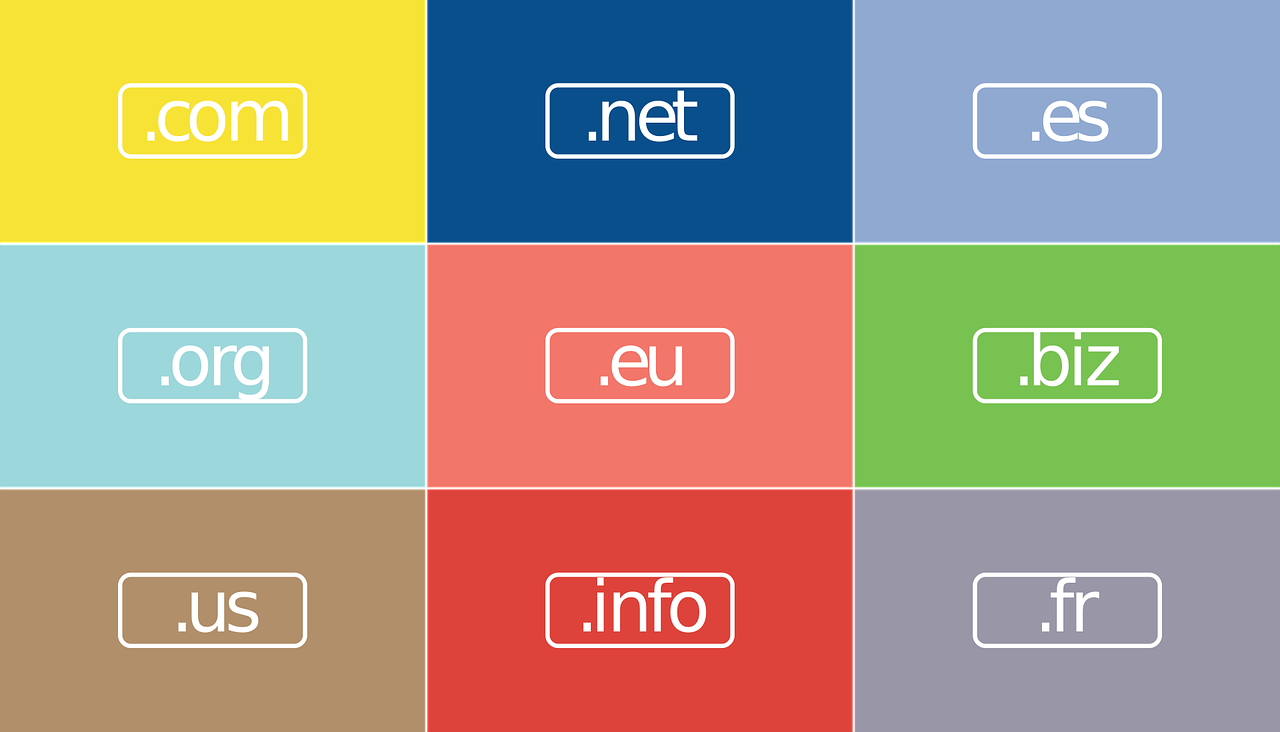When it comes to establishing an online presence, selecting the right domain name is a crucial decision that can greatly impact your website's success. Your domain name not only affects how your site is marketed but also influences how visitors perceive your brand. To help you make the best domain name decision for your website, here are 11 essential tips and considerations:
1. Businesses Don’t Own Domain Names
It's essential to understand that no business truly "owns" a domain name. Domain names are registered, giving the registrant the right to use the domain. To ensure you retain ownership, never let your domain name registration expire. Here are some tips to safeguard your domain:
- Keep your credit card information updated with the domain registrar.
- Enable automatic renewal, but also check manually to ensure it's working correctly.
- Verify that your domain registration email address is correct to receive renewal alerts.
- Consider manually renewing the domain registration before the auto-renewal date.
2. Should a Domain Name Match Your Business Name?
Ideally, your domain name should align with your business name, but there are exceptions. Consider branding opportunities and trends when choosing a domain name. It may be advantageous to have a more web-friendly or snappy name that reflects your business's essence.
3. Should You Use Keywords in Your Domain Name?
Using exact match keywords in your domain can be beneficial as it quickly communicates to visitors that your site offers what they're looking for. However, it's not the only option. Some successful websites, like OnTheWater.com, opt for domain names that convey meaning related to their niche or industry.
4. Domain Names That Convey Meaning
Choosing a domain name that conveys a particular meaning can be advantageous. Think about the qualities or promises you want your site to be associated with, and try to capture that essence in the domain name.
5. Keep the Domain as Short as Possible
Short domain names are easier to type and remember, but they should still convey your intended message to your audience. Aim for simplicity while ensuring the domain remains relevant to your brand or niche.
6. Don’t Use Hyphens in Domain Names
Hyphens in domain names make them look spammy and unprofessional. Avoid using hyphens to maintain a clean and credible appearance.
7. Consider Registering Domain Name Variants
People may misspell domain names or add plurals when trying to access your site. Anticipate common mistakes and consider registering domain name variants to avoid losing potential visitors.
8. Defensive Domain Registration
Protect your brand by registering domain variants that competitors might use in the future. Consider registering the .net, .org, .biz, .info, and .us versions, and country-specific domains if applicable.
9. What If the Dot-Com Domain Is Already Registered?
If your desired .com domain is unavailable, explore country code top-level domains (ccTLDs) or new general top-level domains (gTLDs) like .io or .me. These alternatives can be effective and memorable choices.
10. Country Code and General Top-Level Domain Names
Using ccTLDs can be advantageous if your site visitors are primarily from a specific country. Consider using the appropriate country-specific domain extension to build trust and relevance with your target audience.
11. Has the Domain Been Previously Registered?
Before registering a domain, check its history on Archive.org. If a domain has a legacy penalty from past spammy activities, it might be challenging to rank well in search results.
Choosing the Best Domain Name
Selecting the best domain name may seem daunting, but by considering the tips mentioned above and asking for feedback from potential site visitors, you can make a confident and informed decision. Remember, your domain name is the face of your online presence, so choose wisely.
Conclusion
Choosing the right domain name is a crucial step in establishing a successful online presence. By following the tips and considerations outlined in this guide, you can create a domain name that reflects your brand, resonates with your audience, and enhances your website's visibility and credibility.
FAQs
Q. Is it essential to have keywords in the domain name for SEO?
A. While having keywords in the domain can be beneficial for attracting relevant visitors, it's not the only factor affecting SEO. Focus on creating valuable content and building a reputable online presence.
Q. Can I change my domain name after registering it?
A. Changing a domain name after registration can be complicated and impact your website's rankings and branding. It's best to choose the right domain from the start.
Q. What if my desired domain name is taken?
A. If your preferred domain is unavailable, consider alternatives like ccTLDs or creative variations that maintain relevance to your brand.
Q. Are new gTLDs as effective as traditional ones like .com?
A. New gTLDs can be just as effective if they align with your brand and target audience. However, .com remains the most widely recognized and preferred domain extension.
Q. How can I protect my domain from potential competitors?
A. Registering domain variants and ccTLDs can help protect your brand and prevent competitors from using similar domain names.











Comment
No Comment Here